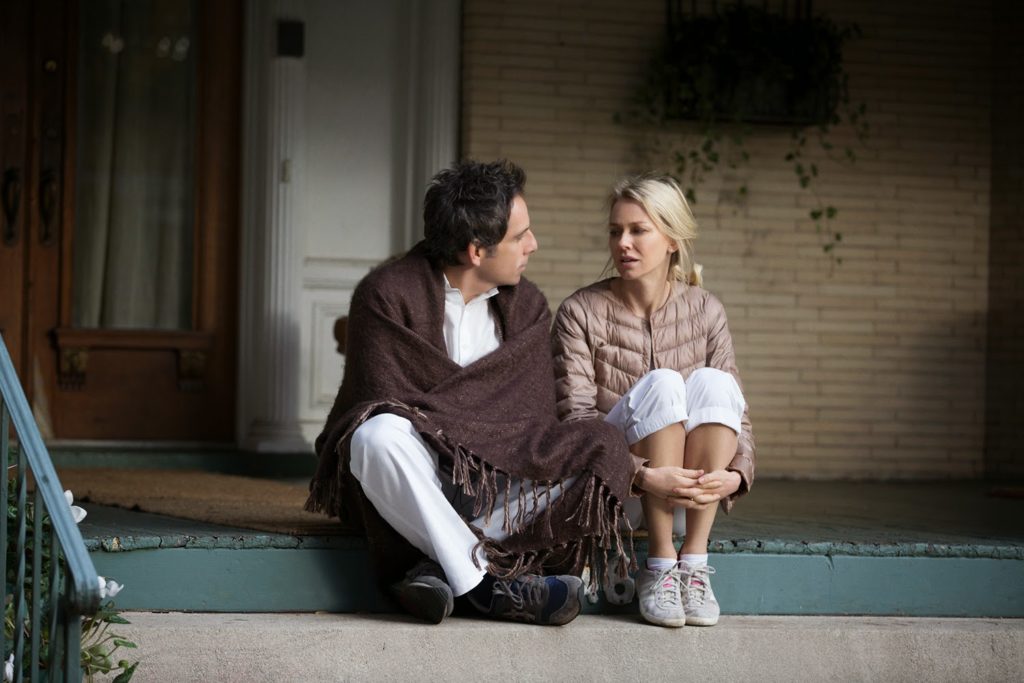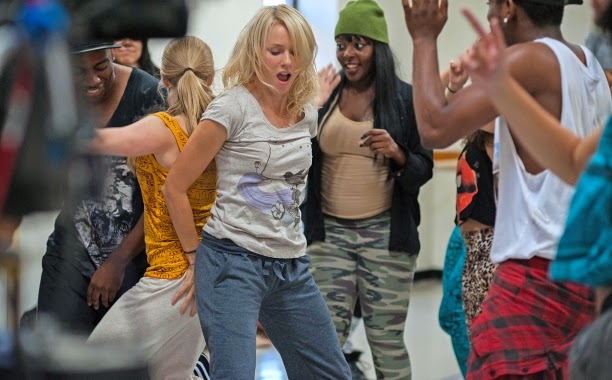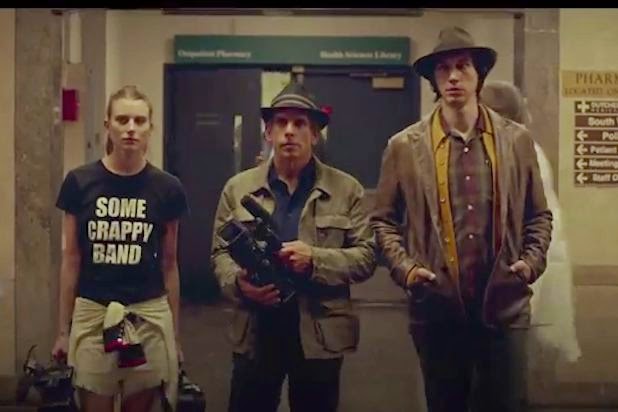The obvious irony of the title While We’re Young is that it’s a movie singularly fixated on the fear of growing old. Its hero is Josh (Ben Stiller), a fortyish documentary filmmaker who lives a life of relative comfort in New York City but is nevertheless plagued with anxiety, about both the specific utility of his work and his general place in the world. In other words, Josh is a lot like Noah Baumbach, the forty-five-year-old director of this bewitching, frustrating film. Like Josh, While We’re Young is smart, and it posits a number of interesting and worthwhile ideas. And, like Josh, it cannot entirely escape the nagging feeling that it’s just running in place, waiting for something to shake it out of its complacency.
In Baumbach’s recent movies, that something has taken the form of Greta Gerwig, the fearless and funny actress whose luminous, achingly vulnerable performance elevated Frances Ha from a crisply amusing cringe comedy into a startlingly humane coming-of-age story. Before that, Gerwig poured her heart into Greenberg, playing opposite Stiller, who delivered a career-best turn as a prickly and altogether unpleasant neurotic. Sadly, Gerwig is absent this time around, while Stiller reverts to his bland, inoffensive screen presence. His lead performance here isn’t bad so much as polite; an established star, he can coast on familiarity and charm, graciously ceding the spotlight to other, hungrier actors. In While We’re Young, he makes room for the magnetic Adam Driver, who plays Jamie, a boisterous aspiring documentarian who seems to idolize Josh.
That adulation makes Josh feel awfully good, especially since he and his wife, Cornelia (a typically excellent Naomi Watts), are currently adrift. Their best friends just had a baby, an event they perceive with a mixture of envy (Cornelia suffered multiple miscarriages in the past) and horror. Spending time with Jamie and his own wife, Darby (Amanda Seyfried), allows them to rekindle their sense of youth, and to feel energized when everyone else their age seems to be dull, placid, and respectable. Getting old is lame. Being young is cool!
Of course, Josh and Cornelia are neither young nor cool, and their time palling around with Jamie and Darby is often clumsy and awkward, even if it’s invigorating. (For example, there’s a cute running gag where Josh repeatedly volunteers to pick up the check after a meal, then reacts in numb disbelief when Jamie doesn’t resist.) The couples’ two-decade age difference presents obvious opportunities for embarrassment, and Baumbach—a master at mining social faux pas for laughs—is all too happy to expose Josh and Cornelia as poseurs. His actors are similarly game, and while it may feel cheap, it is nonetheless amusing to watch Stiller ride a bicycle while wearing a ludicrous fedora, and it is downright hysterical to see Watts shred all vestiges of dignity while gyrating her body spastically during a workout regimen set to hip-hop.
That’s funny, but it also troublingly evokes the work of a director whose films (particularly Greenberg and The Squid and the Whale) are hostile toward their characters, to the point of being off-putting. Thankfully, While We’re Young isn’t exclusively concerned with mocking its protagonists’ failures. It also seems legitimately sympathetic toward their plight, particularly Josh’s inability to make a movie anyone wants to watch. His latest project, which has been gestating for eight unsuccessful years, is an incoherent mess of academic nonsense, a pretentious puddle that his father-in-law (Charles Grodin) describes as “a six-and-a-half-hour film that’s seven hours too long”. Again, the joke here is on Josh, but Baumbach nevertheless seems committed to Josh’s artistic ideals even as he’s eviscerating their stunted execution. And While We’re Young, despite its lissome tone and low-key humor, feels like the labor of a man who’s passionate about his art, even as he’s also profoundly afraid of its insignificance.
This sense of ambition makes While We’re Young interesting, appealing, and, ultimately, disappointing. Surprisingly enough, it’s Baumbach’s script that proves problematic; not content merely to observe his characters, he elects to load the film with plot. Josh, puffed up from Jamie’s incessant praise, resolves to shepherd his protégé through his new project, a terrible-sounding exercise in which Jamie contacts old high school buddies on Facebook, then tracks them down and films them in person. The gambit proves an unlikely success, and as Josh grapples with feelings of professional jealousy, he also questions Jamie’s filmmaking integrity. This leads to a number of revelations regarding Jamie, whose veneration of Josh may not be pure, and whose truth-seeking efforts may be compromised by those abhorrent temptations of fame and commerce.
As far as third-act twists go, While We’re Young‘s is awfully limp. To be fair, Baumbach knows that any tension he generates is artificial, and so he shrewdly deflates it with chilly realism and trademark wit. But I have to wonder why he even bothered. Plot has never been a friend to Baumbach—he’s at his best telling stories about dissatisfied people drifting aimlessly—and grafting such an engineered crisis onto the lives of such dynamic characters feels false and hollow. Worse, he sprinkles the movie with random rebukes of humankind’s reliance on technology, especially during a weirdly tacky coda. Certainly, the paradox of how innovation both connects us and isolates us is worth exploring—as it was in the shining exemplars of The Social Network and Her, as well as the underrated Disconnect—but it deserves more texture and nuance than Baumbach offers here. (It doesn’t help that the director himself seems technically limited; despite some Vivaldi concertos and original music from LCD Soundsystem’s James Murphy, the filmmaking here feels blocky and staid, a regression after the sharpness of Frances Ha‘s black-and-white cinematography.)
Despite this, While You’re Young is mostly an engaging film, with strong performances (especially from Watts and Driver) and smart, snappy dialogue. And as clunky and ill-fitting as this movie can feel, it is happily crammed with ideas: about art, life, parenting, and, most of all, aging. Though he is growing older, Baumbach recognizes that aging is not necessarily the same as maturing. While We’re Young bears that out, to its creator’s credit, and his shame.
Jeremy Beck is the editor-in-chief of MovieManifesto. He watches more movies and television than he probably should.



